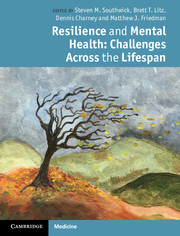Book contents
- Frontmatter
- Contents
- Contributors
- Preface
- Section 1 Pathways to resilience
- Section 2 Resilience across the lifespan
- Section 3 Resilience in families, communities, and societies
- 10 Family resilience: a collaborative approach in response to stressful life challenges
- 11 Community resilience: concepts, assessment, and implications for intervention
- 12 Trauma, culture, and resiliency
- Section 4 Specific challenges
- Section 5 Training for resilience
- Index
- References
10 - Family resilience: a collaborative approach in response to stressful life challenges
from Section 3 - Resilience in families, communities, and societies
Published online by Cambridge University Press: 07 September 2011
- Frontmatter
- Contents
- Contributors
- Preface
- Section 1 Pathways to resilience
- Section 2 Resilience across the lifespan
- Section 3 Resilience in families, communities, and societies
- 10 Family resilience: a collaborative approach in response to stressful life challenges
- 11 Community resilience: concepts, assessment, and implications for intervention
- 12 Trauma, culture, and resiliency
- Section 4 Specific challenges
- Section 5 Training for resilience
- Index
- References
Summary
Introduction
Family resilience can be defined as the ability of families to withstand and rebound from disruptive life challenges, strengthened and more resourceful (Walsh, 2003, 2006). Building on studies of family stress, coping, and adaptation, and research on well-functioning family systems, family resilience is seen to involve dynamic processes that foster positive adaptation of the family unit and its members in the context of significant adversity (Walsh, 1996; Luthar et al., 2000).
This chapter presents core principles of resilience derived from a family systems orientation, highlighting sociocultural and developmental perspectives. The assessment of family resilience is described, identifying key processes that can be targeted to strengthen family resilience in intervention and prevention efforts. Program applications in training and services are described briefly to illustrate the broad utility of this systemic approach for intervention and prevention efforts.
- Type
- Chapter
- Information
- Resilience and Mental HealthChallenges Across the Lifespan, pp. 149 - 161Publisher: Cambridge University PressPrint publication year: 2011
References
- 23
- Cited by



